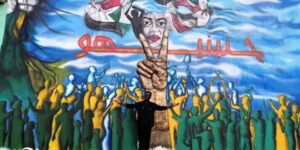The outbreak of conflict between the Sudanese Armed Forces (SAF) and the Rapid Support Forces (RSF) on 15 April has derailed Sudan’s fragile transition towards civilian rule, with deep implications for the country’s future governance trajectory and potentially damaging regional ramifications, notes Chatham House.
 The current devastation follows more than three years where the leaders of SAF and RSF sought to stifle Sudan’s transition towards civilian rule – with a military coup in 2021 and escalating tensions between the two effectively blocking political efforts aimed at restoring a robust civilian government. The war is situated in an uncertain regional and international context, with key stakeholders seeking to influence political outcomes in Sudan in often contradictory ways, while the lack of coordinated mediation efforts jeopardizes prospects for reaching a lasting resolution.
The current devastation follows more than three years where the leaders of SAF and RSF sought to stifle Sudan’s transition towards civilian rule – with a military coup in 2021 and escalating tensions between the two effectively blocking political efforts aimed at restoring a robust civilian government. The war is situated in an uncertain regional and international context, with key stakeholders seeking to influence political outcomes in Sudan in often contradictory ways, while the lack of coordinated mediation efforts jeopardizes prospects for reaching a lasting resolution.
The above discussion, supported by the National Endowment for Democracy (NED), explores perspectives on the war and discuss scenarios for its evolution and resolution, including the role of Sudan’s civilian and political class, the implications of local and regional interests, and the prospects for negotiations aimed at reaching a permanent ceasefire and returning Sudan on a path to civilian rule.







